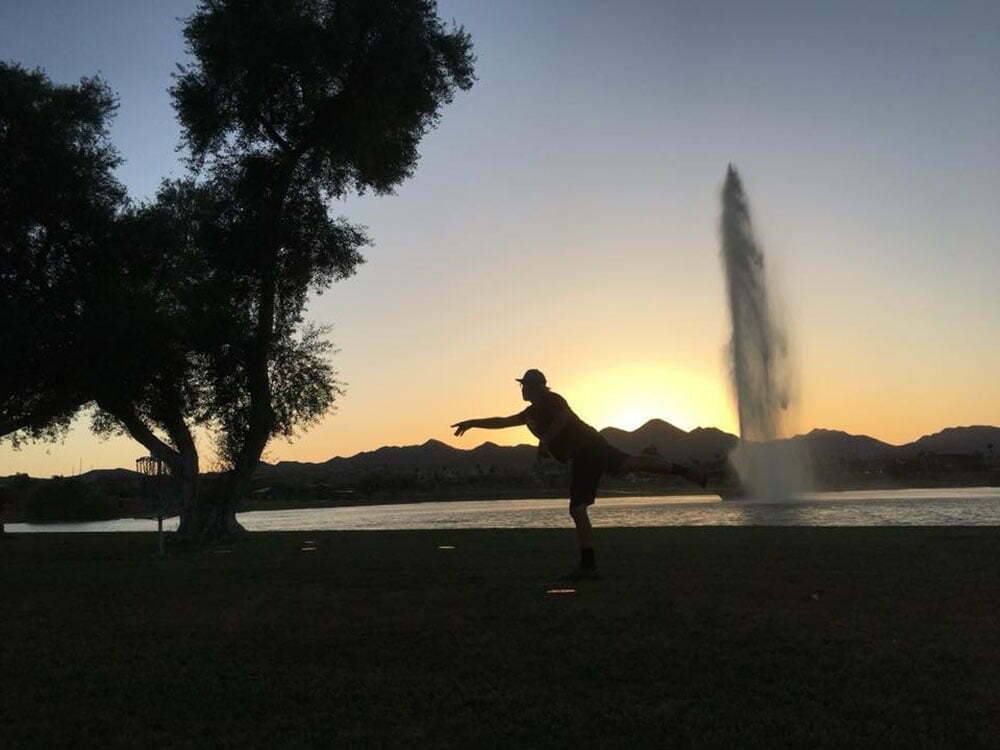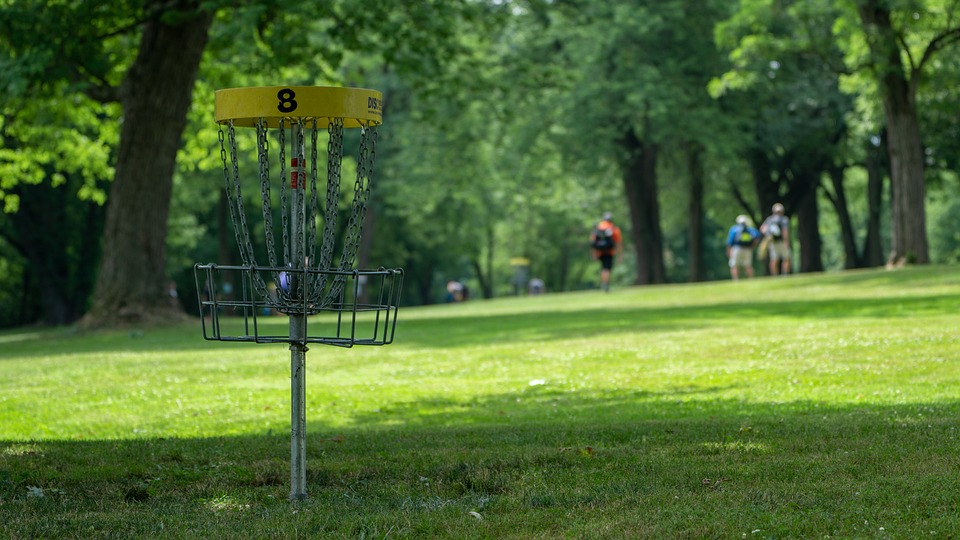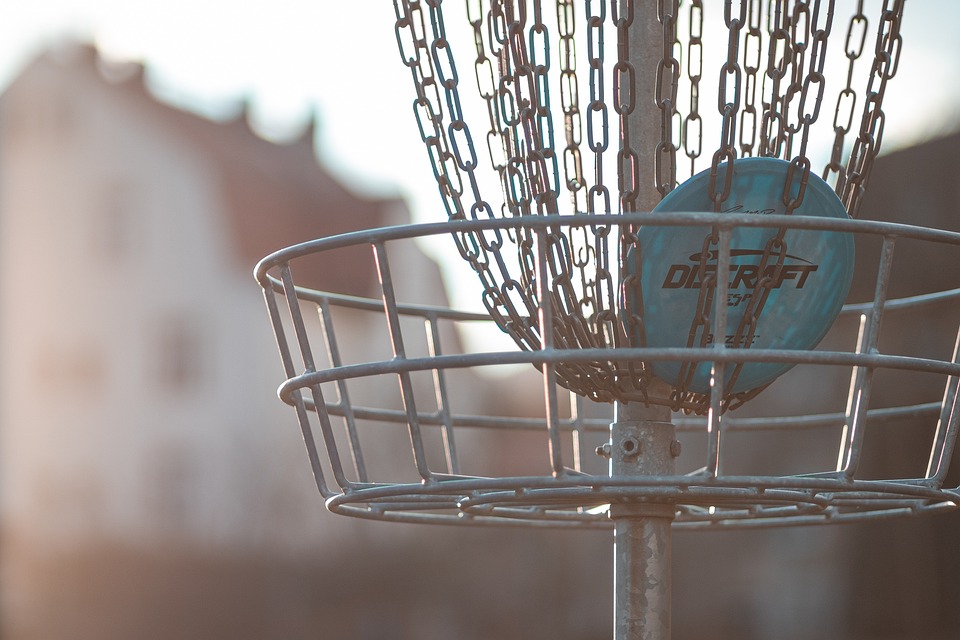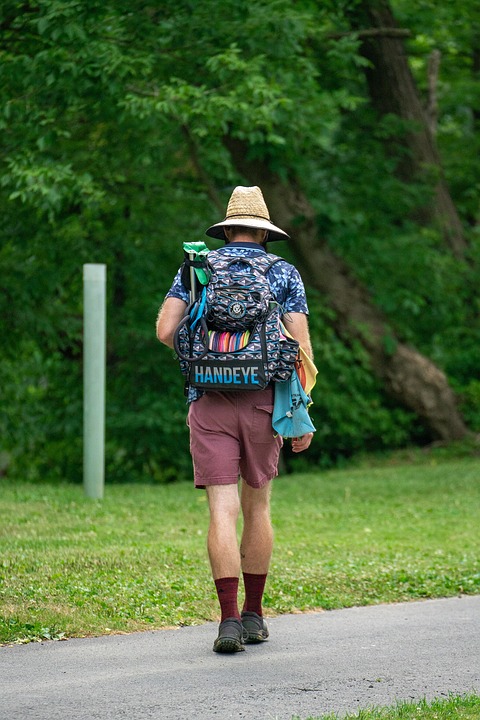Disc golf participation soars during coronavirus pandemic
Carla Walker was tired of sitting inside during the coronavirus pandemic. She missed going to the gym, shopping and spending time with friends and family. Her retail job in Central Phoenix had laid her off and she had time on her hands. She wasn’t sure how to fill it.
One day while returning from buying groceries, she took a different route to avoid traffic and drove past something she had never seen before: a disc golf course.
“I remember seeing two guys throwing a Frisbee, but not to each other or to a dog,” Walker said.
She dropped off her groceries at her apartment and returned to Conocido Park in North Phoenix to walk around and watch a little longer.
READ ALSO: 10 ways to socialize while social distancing
“They were throwing the Frisbees at these metal basket things on poles,” Walker said. “It looked sort of weird but I could see a bunch of other baskets around the park and figured that’s how you play the game.”
Walker did research on her phone and learned they were playing disc golf. She watched a few videos and quickly learned the rules. She even found a beginner’s set of discs online and bought them while she was still at the park.
When the coronavirus pandemic put a halt to most recreational sporting events and activities, people began looking elsewhere for exercise and competition. While many indoor sports are slowly returning, outdoor activities have seen major growth and involvement in the last year. Disc golf is one of them.
The sport is similar to traditional golf. Participants begin at a tee box or launchpad and throw their disc toward a “hole,” which is an elevated, metal basket. Each hole has a set number for par, and scoring is the same as traditional golf, where each throw equals one stroke. A round of disc golf is typically 18 holes but some courses also offer nine and 27 or more holes. Depending on how busy the course is and how quickly one plays, a round of disc golf can take anywhere from one to three hours.
In disc golf, there are different types of plastic discs that offer different flight paths and distances. The discs are categorized as distance drivers, fairway drivers, mid-range drivers and putters. Similar to traditional golf, or “ball golf” as some disc golfers call it, where a driver is used to hit a golf ball farther than a 9-iron, a distance driver disc more than likely will fly farther than a mid-range disc or putter. Within each category there are subtle differences that (Photo courtesy David Payne ) These are often noted on the disc with specific numbers. Each disc varies in price but the average disc costs $13 to $15, although some are as low as $8 or as high as $30 depending on the quality of plastic and manufacturer.
UDisc, an app for disc golfers to keep their score and statistics as well as find new courses worldwide, put together The Disc Golf Growth Report in February 2021. Fifty million rounds of disc golf were played in 2020, according to the report. That’s equivalent to more than 140,000 rounds per day and 100 rounds started every minute of the year. Also, 11.7 million rounds were scored through the UDisc app in 2020, which is three times the amount scored in 2019.
Brian Hartman, an associate professor of statistics at Brigham Young University, conducted a study with some of his students to help UDisc with its growth report.
“We had the data of how many people were scoring rounds on UDisc and wanted to find out how many more people were playing that weren’t using the app,” Hartman said. “It ended up being that for every one round scored on UDisc there were about four rounds, give or take, that were played not using the app.”
Hartman said the first time he played disc golf was 20 years ago, but it wasn’t until the pandemic that he started playing consistently. He said he began using UDisc a few years ago to score his rounds and noticed they were looking for a data analytics intern, which piqued his interest.
“I thought it would be so fun to work on disc golf data,” Hartman said. “I applied for the job and told them I’m not going to leave my faculty position but that I’d love to do some disc golf data work.”
Through the study, Hartman became an even bigger fan of disc golf and got more involved as a player.
“I played maybe two or three rounds a year in the past few years but when the pandemic hit, I really got into it and started researching about different discs and played a lot more often,” Hartman said. “I guess you can include me as part of the growth the sport has seen during the pandemic.”
Benjamin Loveallo, a member of the Desert Flyers, is among the disc golfers who like to participate in tournaments, like this one at Conocido Park. (Photo courtesy of David Payne)
Another way the growth of disc golf can be quantified is by looking at the Professional Disc Golf Association or PDGA, a membership organization dedicated to promoting and sustaining the sport of disc golf. At the end of 2020, the PDGA had 71,016 active members, up 84% from the 53,366 active members in 2019, according to the 2020 PDGA Year End Demographics Report.
Since its creation in 1975, the PDGA has seen upwards of 156,722 total members. Each member is given a specific membership number that they use in PDGA events and tournaments.
The majority of these members (61%) are in the 20-40 age range and 53% of them have a household income of under $75,000, according to the PDGA’s 2020 report. It also shows that 93% of all active PDGA members are male.
Walker said she has seen a few other women playing disc golf but isn’t concerned that it’s currently a “guy’s sport.”
“I’ve seen guys out here play worse than me and I’m just learning,” Walker said. “It doesn’t necessarily surprise me that more men play than women, but I think if more women came out and tried it they’d enjoy it.”
The number of female PDGA members grew by nearly 25% in the past year, from 3,826 women to 4,752. This doesn’t include women who play disc golf but are not members of the PDGA.
Justin Menickelli, president of the board of directors for the PDGA, said the growth seen by the association was not expected.
“When the pandemic hit, we were cautiously optimistic but overall we were nervous,” Menickelli said. “We furloughed some of the staff and postponed all our sanctioned events. We had to cancel the National Tour and World Championship and we basically had to shut down like everyone else. We were really nervous and we didn’t know what was going to happen.”
Part of the process of being and staying a member of the PDGA is competing in sanctioned events and tournaments. Menickelli said he was nervous they would lose a lot of members because those events were canceled, but “the complete opposite happened.”
“It was crazy,” said Menickelli, a professor of kinesiology at Western Carolina University in Cullowhee, North Carolina. “The membership base blew up and it felt like the numbers doubled overnight.”
Menickelli is president of the board of directors for the PDGA, a volunteer position that he has held for four years. He also has a side business where he and a few business partners help design disc golf courses for different cities or private parties looking to construct a course.
“The pandemic was hard on everyone,” he said. “But for disc golf, it was really a blessing in disguise. It brought in tons of new players, tons of eyes on the sport through social media, and tons of money to continue growing.”
As state mandates and guidelines changed, sanctioned PDGA events were rescheduled and played. One event was the Memorial Championship in Scottsdale in March 2021, where Phoenix’s Christopher Paetz won first place among amateurs with a 10-under-par score.
Paetz started playing disc golf when his high school friend introduced it to him six years ago. He recently graduated from Arizona State University with a degree in marketing. Paetz was also a member of the ASU Disc Golf Club, which is affiliated with the school but not funded by it. The club is based out of the Polytechnic campus and often uses Conocido Park as its practice course.
“Our goal each year was to raise enough money through fundraising to bring everyone in the club to College Nationals,” Paetz said.
The College Disc Golf National Championship is affiliated with the PDGA and began in 2007. It is held in different cities each year and each college club attending competes in multiple flights or teams. Paetz’s first experience at nationals was in 2019 in Appling, Georgia, home of the PDGA’s headquarters and about 30 miles northwest of Augusta, the home of traditional golf’s Masters Tournament.
“Our A team got 13th out of 36 and our B team didn’t do quite as well, which is the one I was on, but I don’t remember what place we got,” Paetz said. “I had a great time and I couldn’t wait to go back in 2020, but of course we all know what happened.”
After the 2020 championship was canceled due to the pandemic, Paetz geared up for 2021, which would be his last collegiate tournament. In April’s championship, he competed on ASU’s A team, which placed 16th of 36 teams.
On top of competing in major PDGA sanctioned events as an amateur and the College National Championship, Paetz is part of the Desert Flyers, a community of disc golfers who hold their own tournaments in the Phoenix area. He said he has noticed a new surge of participants in the community during the past year.
“I’ve seen way more people play at the courses I play at,” Paetz said. “Instead of seeing just normal park goers, the courses are packed with people playing every afternoon I’m there.”
Conocido Park is one of the courses the Desert Flyers frequently enjoy. They hold a doubles tournament league every Sunday, Monday and Wednesday at 5 p.m. and often put on weekend events there and at other local courses.
Tommy ‘Gunz’ Trujillo, one of a group of friends who founded the Desert Flyers 12 years ago, has seen disc golf grow since he started playing in 1992, but never like he has in the past year.
“People realized we could still come out here and play and be outside and keep distance from each other and that brought a ton of new players,” Trujillo said. “It didn’t matter that there was a pandemic. We all just wanted to still have fun.”
Trujillo estimates he’s seen the number of players double in the last year when it comes to the group’s Sunday, Monday and Wednesday league. In these league tournaments, players bring five dollars to play and are given random partners.
“It’s fun because a lot of the time beginners will get paired up with pros who come out and everyone has a great time,” Trujillo said. “All the money that comes in goes right back to the players who win each night.”
Trujillo said the Desert Flyers are always welcoming new members and never want to cap the number of participants.
“Every time we’re out here and we see people playing by themselves or on their own we always invite them to play with us,” Trujillo said. “We’re the coolest group of guys out here and we just want more people to learn how to play and come have as much fun as we have.”
The Desert Flyers Facebook page is a public page that boasts over 2,000 members in the greater Phoenix area. Their goal, according to the page, is to “take everyone to the next level of disc golf and continue growing the sport.”
Walker, who admitted she’s becoming a regular at Conocido Park, said she’s aware of the Desert Flyers but isn’t quite confident enough to join them.
“I’m sure I’d enjoy playing with them but I don’t think I’d do any good in their tournaments,” Walker said. “I prefer to just play for fun. That doesn’t mean I won’t join them someday though. It might be fun winning some money if I ever get good enough.”
Walker is quick to invite anyone looking for a new hobby to try disc golf.
“It’s cheap to start, easy to play and a lot of fun,” Walker said. “Plus, you get to be outside and enjoy life, which is a nice change of pace compared to those peak pandemic days stuck at home.”
Story by David Payne, Special for Cronkite News
